Your cooperative will be retiring $2 million in capital credits in December. This will take us over the $20 million dollar mark since 2009. In the past, we have returned cash from just Cherryland Electric Cooperative. Other years, it has been a combination of cash from Cherryland and your power supplier, Wolverine Power Supply Cooperative. For the first time in my memory, Cherryland will be passing through $2 million that comes completely from Wolverine.
While a majority of our members realize they belong to a cooperative, there is probably a great number who don’t take the thought to the next level. Just as you are a member of Cherryland, Cherryland is a member of Wolverine. Thus, when Wolverine has positive margins, Cherryland is allocated a portion. The $2 million being passed through to Cherryland members comes from historical Wolverine margins.
Why retire any cash at all? Wouldn’t this make the financial condition of the cooperative even better? Yes, Cherryland could certainly retain the $2 million to improve our financial condition. While the board and management had a desire to partially bolster financials with a smaller retirement, your cooperative is still in strong financial condition. Thus, everyone around the board table felt that it was appropriate to give back the cash now rather than later. Capital credits are simply interest free debt owed to each individual member that should be repaid at some point after all.
Why give cash back in December while (as I type this) proposing an increase in residential rates in 2018? This is an obvious question and one that we will get many times when/if the suggested $3 per month residential rate increase goes into effect next year. I completely understand how many people will link the two acts. The fact remains that they are two separate and distinct decisions.
The 2018 rate increase is intended to cover current and future operating costs over the coming three-to- five-year period. As explained in previous columns, Cherryland’s rates have not gone up for almost seven years. A $3 per month increase on residential bills is necessary to offset the increased costs of operating a cooperative with 55 employees, 3,000 miles of line and 1,400 square miles of service territory.
Another important distinction that separates the two decisions is the individual members involved. The return of the cash goes mostly to cooperative members in 1998 and 1999. The rate increase will be paid by those people who are cooperative members in 2018 and beyond.
There will certainly be many members who get a portion of the December cash as well as all of the spring rate increase. Again, they are simply being repaid the debt they each loaned the cooperative some 19 years earlier while being properly charged for the cost to keep their lights on in 2018 and beyond.
I firmly believe each decision truly stands on its own merit. However, I also understand that the two actions are a giving and a taking. It is not the first time and certainly will not be the last time. There is no other form of utility governance that operates this way. It is a give and take that everyone at your cooperative is proud to be a part of.




Thank you for the rebate, it’s greatly appreciated .
I really appreciate your newsletter communications. They have been concise, relevant , and helpful to understanding policy . Thank you
Just “THANK YOU”
Really as being 80 my husband 87 with Parkinson’s I dread increases its already impossible to makes ends meet the money stays the same we have SS Food, gas DTE blah bla is all adding up trying to made one dollar out of 80 Cents a little here to a wealthy person 3.00$ is chump change a 100.00 is also chump change to many making money. we r at a standstill money wise do you guys ever take that in consideration we are both stretched beyond the money we get.
thanks please think of us & others seniors that r not wealthy or comfortable. We do not want charity just consideration
Sincerely
Thank you for considering a rebate, it is greatly appreciated. Overall very content with your services. Thank you
Tony, a great explaination of the two spearate issues. I was asked this question on Saturday night and gave him a similar answer. In additon, I suggested he read your article which gave better explaination. Great article Tony, Don